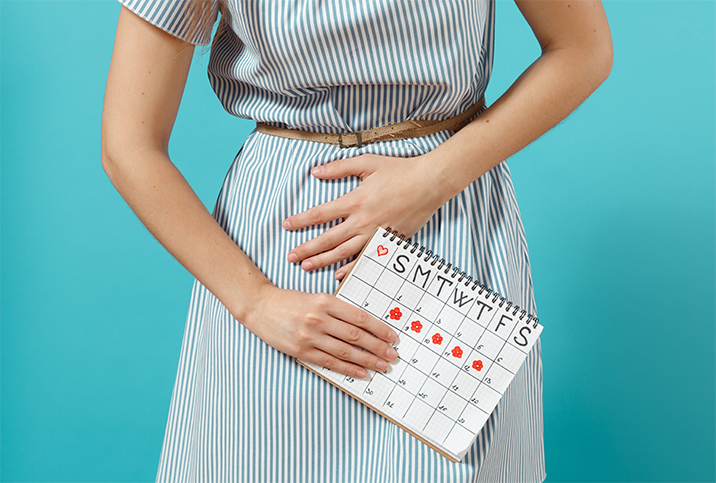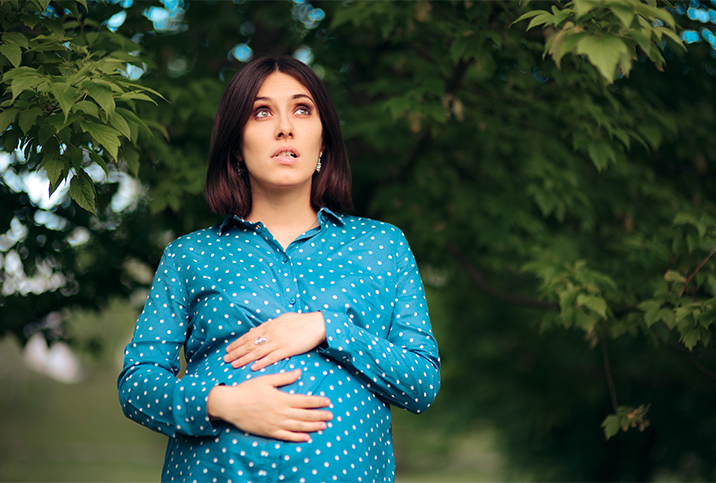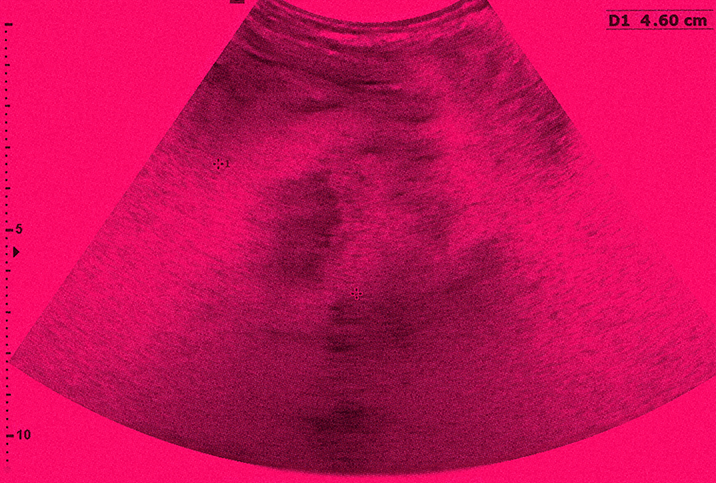Can You Get Pregnant on Your Period?

As anyone who is trying to get pregnant knows, several factors must align for conception to occur. Mainly, sperm must travel into the vagina to meet an egg in the right place at just the right time. Then, and only then, can the fertilized egg attach to the uterine wall, where a baby can start to develop.
So if conditions need to be perfect, is it possible to get pregnant during period sex?
Doctors say yes.
How can someone get pregnant on their period?
"Although women are most likely to get pregnant when they are ovulating, there is always a chance of getting pregnant when having penetrative sex," said Mary Jane Minkin, M.D., a practicing gynecologist and clinical professor of obstetrics, gynecology and reproductive sciences at Yale University School of Medicine. She added that women on hormonal birth control are fine to have sex during their periods because they're not ovulating.
Getting pregnant from period sex can happen in one of two scenarios: an irregular cycle or long-living sperm.
Ins and outs of your cycle
Though every menstrual cycle is unique, the average cycle lasts 28 days. Jennifer Lew, M.D., a gynecologist at Northwestern Medicine Kishwaukee Hospital in DeKalb, Illinois, explained that your body goes through four phases during this cycle:
- Menstruation. Most periods last between one and six days, during which your uterine lining disintegrates and exits your vagina.
- Follicular phase. After your period, the ovum, or egg, develops.
- Ovulation. On this day, the ovary releases a mature egg that moves into the right position to be fertilized.
- Luteal phase. This approximate 13-day span involves the thickening and preparation of the lining of the uterus for the pregnancy implantation.
Most people with periods have a weeklong fertile window, which Minkin said includes the five days before ovulation, the day of ovulation and the day after ovulation. But, of course, not everyone's period follows a perfect schedule.
"It can be possible to conceive on one's menstrual cycle if there is an unexpected ovulation at that time," Lew said. "Sometimes cycles are irregular and not predictable. Sometimes two ovulations can occur."
Sperm that overstay their welcome
Period sex carries a pregnancy risk even with a predictable cycle, because sperm sometimes survive in the vagina for several days.
Though most sperm die within 36 hours of ejaculation, about 1 percent of sperm can live for an entire week or more, according to research published in the journal Advances in Contraception. If your bedfellow's sperm are 1-percenters, they might stick around until your fertile window. In that case, sex toward the tail end of your period can result in pregnancy, Minkin explained.
What are the odds of conceiving while menstruating?
There's only a 1 percent to 2 percent chance of getting pregnant on your period, Minkin said. She warned against becoming lax about contraception, however.
"If you say, 'Hey, I want to get pregnant sometime this year and if it happens now, that would be fine,' well then, not to worry," she said. "However, if a pregnancy would be devastating, then you want to use the condom every time."
How do you know if you got pregnant on your period?
If you had period sex and suspect you might be pregnant, there's no harm in taking a pregnancy test, though be aware that test results could be inaccurate within the first two weeks of conception.
Minkin recommended an early-result pregnancy test.
"These tests will be able to tell you if you're pregnant up to six days before your next expected period," she said.
Pregnancy prevention during your period
If your body is ovulating and you have unprotected sex with someone who ejaculates into your vagina, you can get pregnant on your period.
"It would be best to always have protection against pregnancy," Lew advised.
Protection comes in many forms, of course. Anyone on the combined pill (one that contains both estrogen and progestin) or the mini-pill (progestin only) is no more likely to get pregnant from period sex than from sex at any other time. With perfect use, the pill is considered 99 percent effective at preventing all pregnancies because it stops ovulation altogether.
Nonhormonal options can work, too, especially when the chance of getting pregnant on your period is already so low. Nonhormonal birth control, such as condoms and diaphragms, are easy-to-use, lower-cost choices, according to Planned Parenthood. If you're interested in nonhormonal, long-acting reversible contraception (LARC), the copper intrauterine device (IUD) is an option.
An emergency contraceptive pill, such as Plan B, can also help prevent pregnancy by temporarily stopping ovulation so no egg is released or fertilized. The morning-after pill is available over the counter in most pharmacies.
The bottom line: The risk of getting pregnant on your period is slim, but it still exists. If a surprise pregnancy would be unwelcome, take precautions every time you have sex.


















